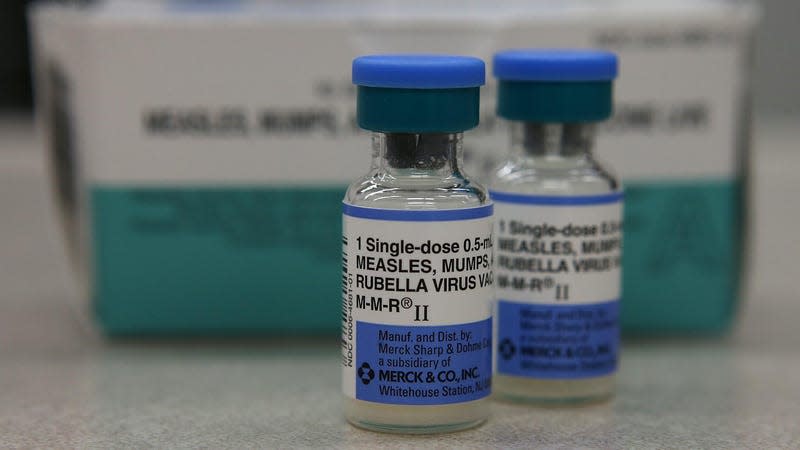A Measles Outbreak in Ohio Has Hospitalized Seven Kids So Far

An outbreak of measles in Ohio has spread through at least 7 daycares and a school in the area. Officials are now investigating 18 suspected cases of the fast-spreading but vaccine-preventable viral illness, all among unvaccinated children. Several of the children have been hospitalized.
Columbus Public Health (CPH) and Franklin County Public Health (FCPH) officials first reported the measles outbreak in early November. At the time, they had confirmed four cases that were linked to a single child care facility. On Wednesday, however, CPH spokesperson Kelli Newman told CBS News that they are currently looking into 18 possible cases of measles, with seven children having been hospitalized. All of the cases have been in unvaccinated children, and 17 have involved children under the age of five. The outbreak as a whole has affected 7 day cares and one school, all of which have taken precautionary measures to limit further spread, according to the CPH.
Read more
“All the facilities are cooperating with public health, and they have notified all parents and removed all unvaccinated students out of the facility for 21 days after the last case onset,” Newman said in a statement given to CBS News. “We continue to work on contact tracing with Nationwide Children’s Hospital and with affected families. Our investigation and contact tracing is ongoing and we don’t know yet where the outbreak started.”
Measles typically causes a distinctive rash and flu-like symptoms such as fever, runny nose, and watery eyes. It very rarely causes serious illness in older children, but can be dangerous and even fatal when caught at an early age; it can also cause people to essentially forget their immunity to other past infections, making them vulnerable to these germs once again.
In unprotected populations, measles is one of the most contagious diseases known to exist. But thanks to a highly effective vaccine and a routine childhood vaccination program, measles has been locally eradicated in the U.S. for decades. Unfortunately, the virus has resurged and remains endemic in many parts of the world where vaccination programs haven’t been as successful. As a result, travel-related cases of measles will periodically appear in the U.S. and can seed outbreaks that spread rapidly among pockets of unvaccinated individuals, who are often children too young to have gotten the vaccine yet or whose parents are members of the anti-vaccination movement.
In 2019, there were more than 1,200 reported cases of measles in the U.S.—the largest tally seen since the early 1990s—and there was even the risk that the country could have lost its eradication status. Annual cases of measles in the U.S. have been low ever since, with 33 total cases documented in five jurisdictions by the Centers for Disease Control and Prevention this year as of October 28. But the potential speed of an outbreak that’s begun to spread locally often demands a dedicated public health response.
Elsewhere, experts with the World Health Organization and UNICEF have warned that 2022 may be a nightmare year for measles worldwide, thanks in part to the disruption to vaccination programs caused by the covid-19 pandemic. In late October, Reuters reported that there have been at least 45,000 measles cases and 2,300 deaths documented in Africa alone so far this year, well above the numbers seen up to that point in 2021.
More from Gizmodo
The Best Shortcuts On Mac: Snap Windows, Text to Speech, and More
How to Delete Your Twitter Account If Elon Musk Was Your Last Straw
Sign up for Gizmodo's Newsletter. For the latest news, Facebook, Twitter and Instagram.

